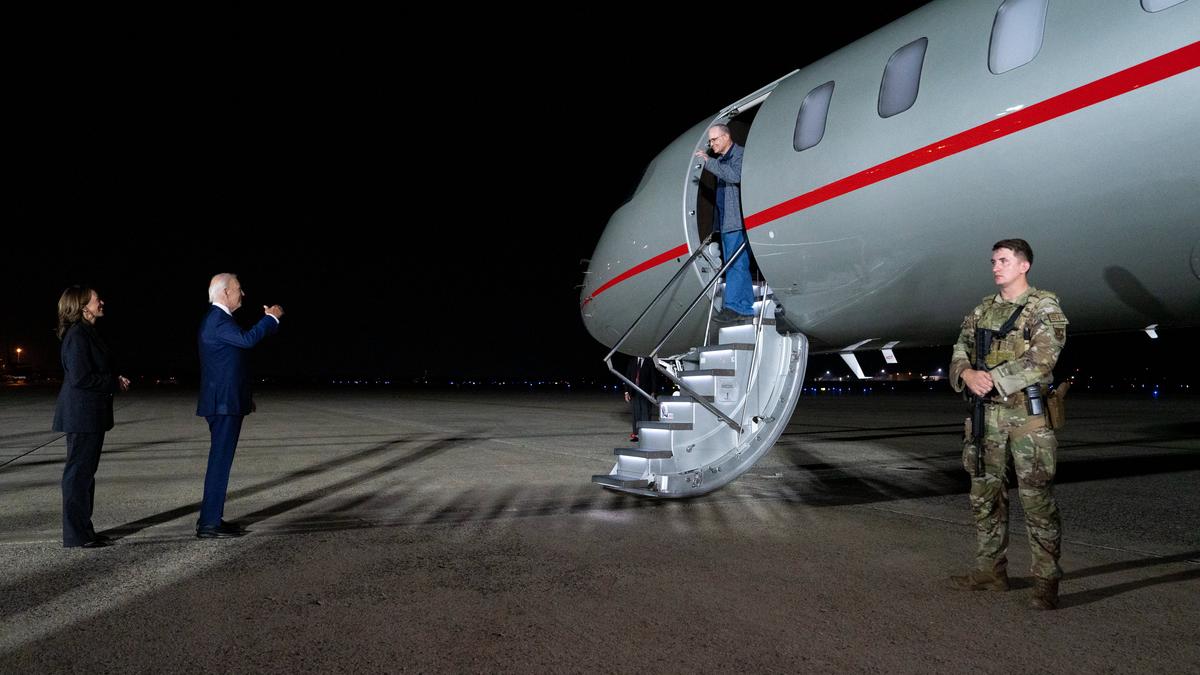The fruit of months of delicate and patient diplomacy, the deal brokered by the United States and Russia that led to a prisoner exchange on an unprecedented scale on Thursday had already been on the brink of collapse at least once, when Russia’s highest-profile political prisoner Alexey Navalny suddenly died in his Arctic penal colony just days ahead of the initially agreed swap.
Confirming that US citizens Paul Whelan, Evan Gershkovich, Alsu Kurmasheva, and British citizen Vladimir Kara-Murza were “finally coming home”, US President Joe Biden praised all those involved in the “tough, complex negotiations” and thanks American allies for their support in securing a deal to release 16 people unjustly incarcerated in Russia.
As well as the high-profile prisoners, such as Wall Street Journal reporter Evan Gershkovich, whose name and face were, thanks to the determination of his colleagues, never allowed to fade from our collective memories, who else was among the 16 individuals who have spent months, and in many cases, years, unjustly incarcerated by the Russian state for “crimes” such as speaking their mind, posts on social media decrying Russian war crimes, and, in one case, changing the price tags in a St. Petersburg supermarket.
The freed
A total of 16 prisoners were handed over by the Russian authorities at Ankara Airport on Thursday, the majority of whom were Russians who had dared to speak out against Vladimir Putin’s invasion of Ukraine in February 2022 or who had worked for late Russian opposition leader Alexey Navalny. Among them was Oleg Orlov, the co-chair of Russian human rights organisation Memorial, which was awarded the Nobel Peace Prize in 2022 for its work documenting historical and contemporary political oppression, and who at 71 was the oldest of the exchanged prisoners. The youngest, Kevin Lick, is just 19.
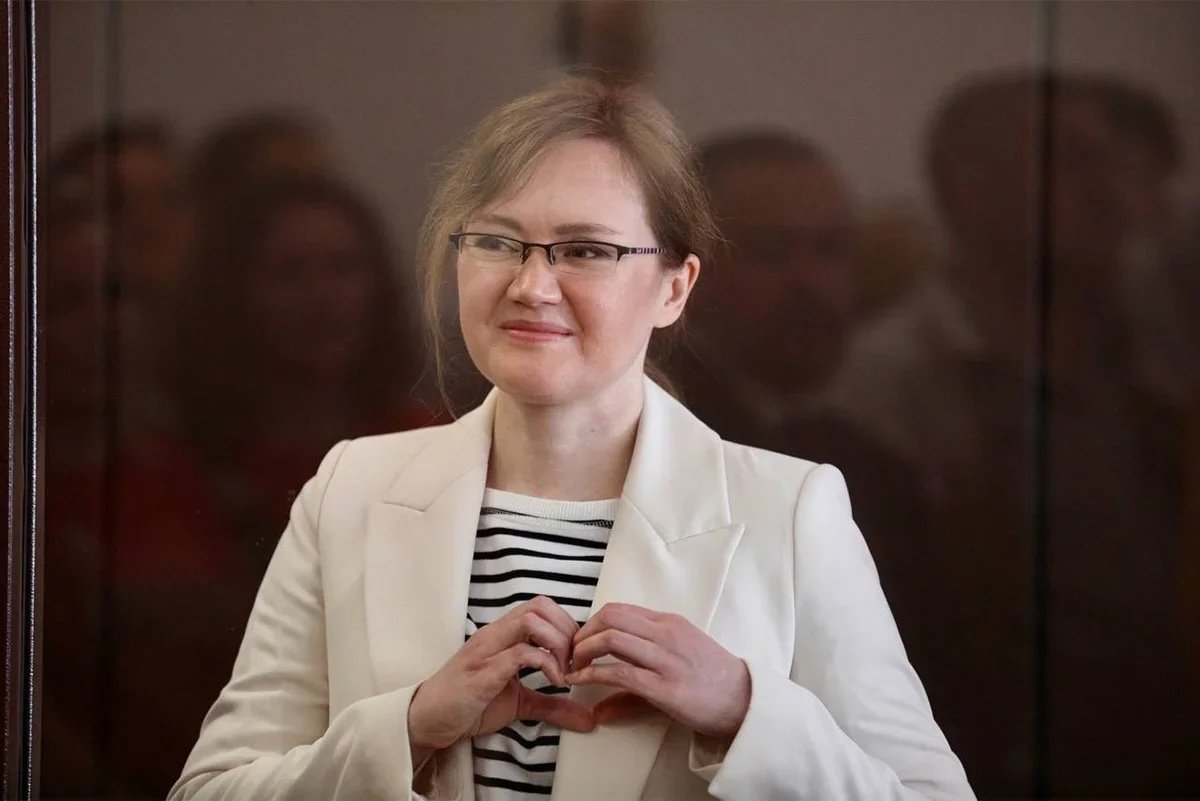
Photo: Alexandra Astakhova / Mediazona
Liliya Chanysheva
Liliya Chanysheva ran the late Russian opposition politician Alexey Navalny’s headquarters in the Volga region city of Ufa, and was sentenced to seven and a half years in prison in June 2023 for “calling for extremism” and participating in “an extremist community”. Her sentence was subsequently raised to nine and a half years in April following a complaint by the Prosecutor General’s Office that her original sentence had been “too lenient”.
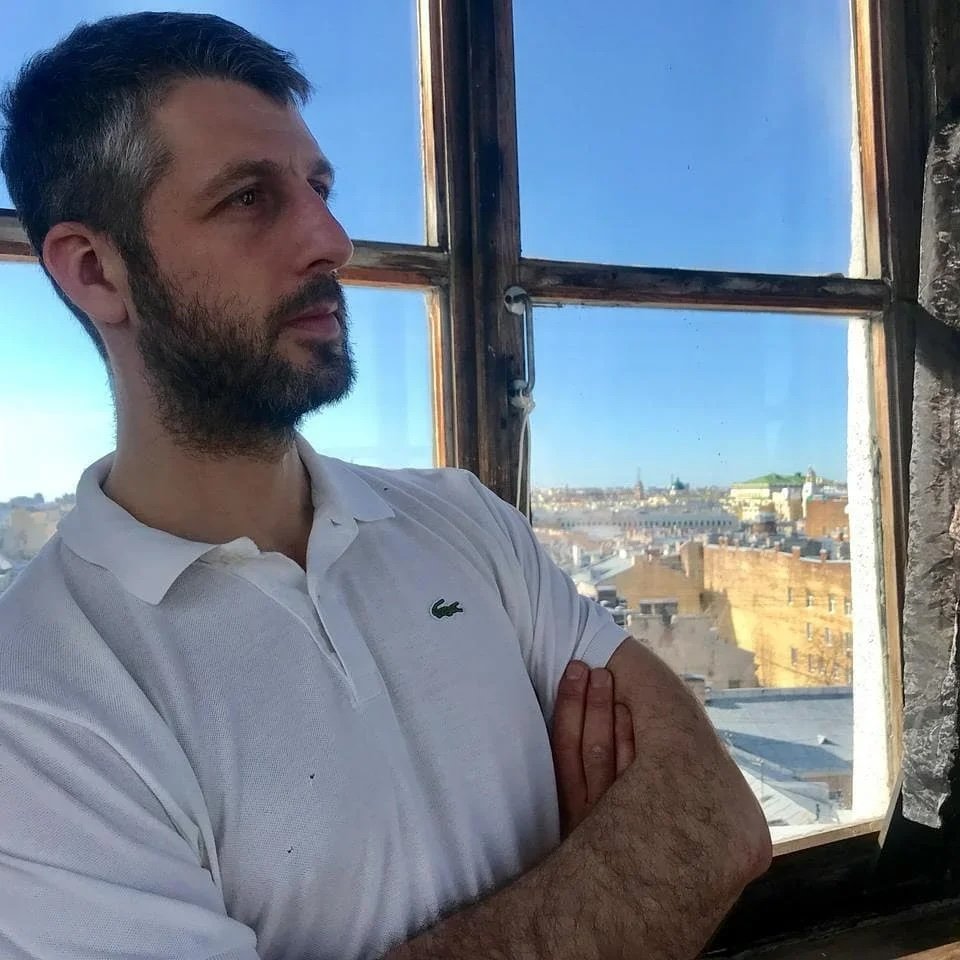
Photo: German Moyzhes / Instagram
German Moyzhes
German Moyzhes is an activist and lawyer who provided support to Russian citizens seeking a residence permit in Germany. Moyzhes was arrested in May and charged with treason when he was suddenly confronted by police cars while riding his bike along an embankment in St. Petersburg. Journalist Sergey Parkhomenko had suggested that Moyzhes was arrested as a “hostage” due to his dual Russian-German citizenship in order to “continue bargaining for the release of murderers and terrorists”.
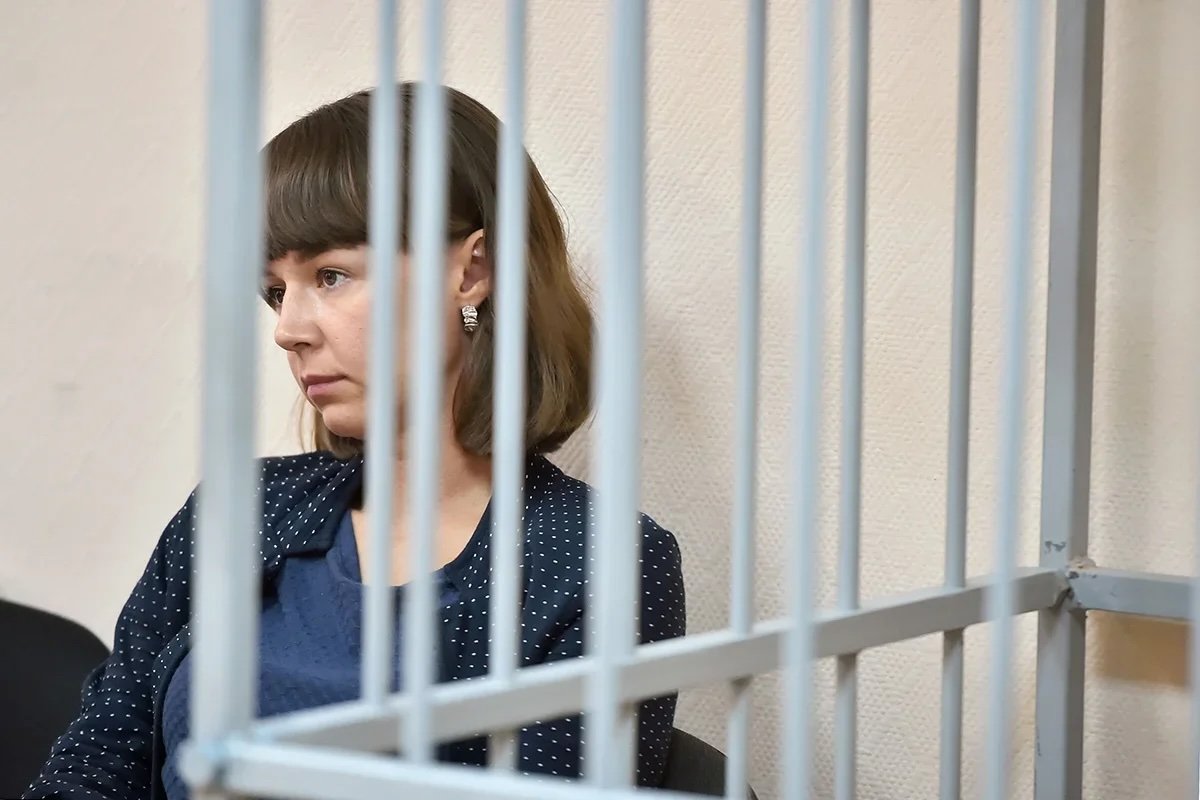
Photo: Vlad Nekrasov / Kommersant / Sipa USA / Vida Press
Ksenia Fadeyeva
Ksenia Fadeyeva was the head of late Russian opposition politician Alexey Navalny’s headquarters in the Siberian city of Tomsk, a role for which she later received a nine-year prison sentence in December, after being found guilty of involvement with an “extremist organisation”. While initially open to the public, her trial was moved behind closed doors following the high-profile but ultimately failed poisoning attempt made on the life of Alexey Navalny.
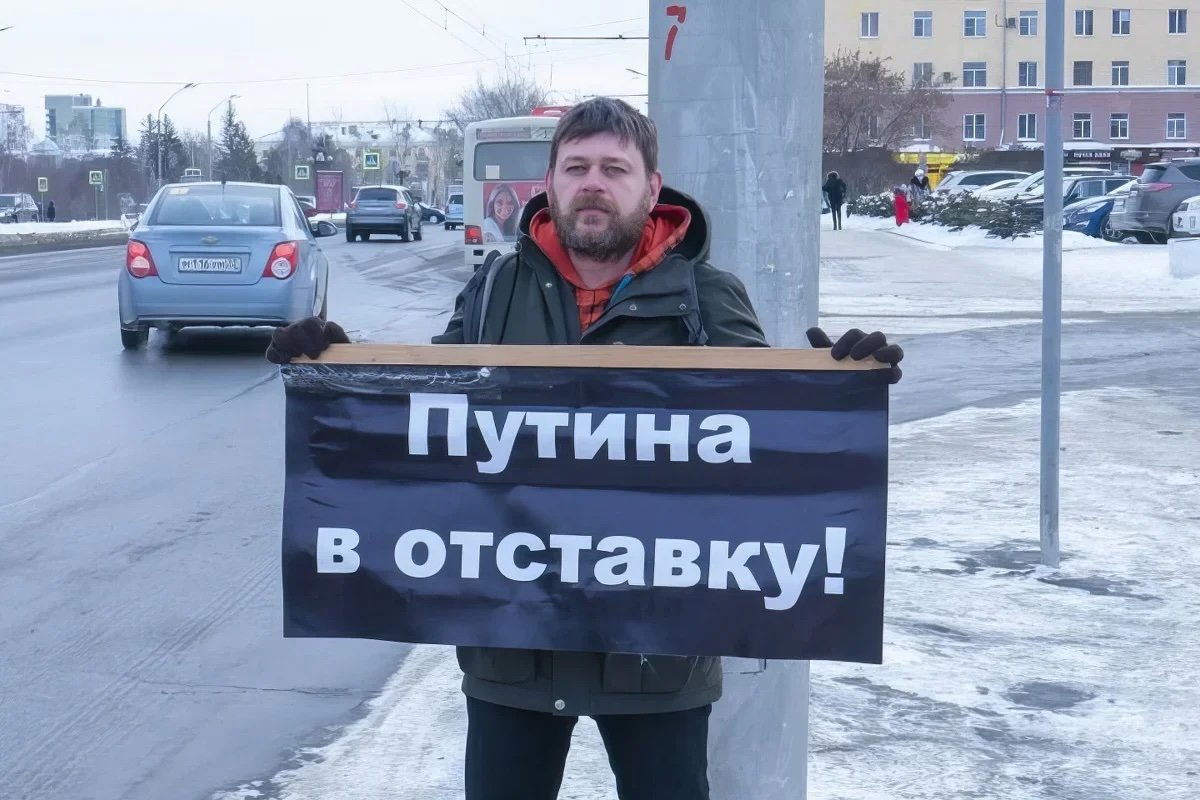
Photo: Team Navalny / Telegram
Vadim Ostanin
Vadim Ostanin was formerly the head of late Russian opposition leader Alexey Navalny’s local headquarters in the southern Siberian cities of Biysk and Barnaul. Ostanin was sentenced to nine years in prison for “participating in an extremist community” due to Navalny’s organisation’s designation as an “extremist organisation”. Navalny’s team said in a statement that Ostanin was held in “appalling conditions”, claiming that jail staff had put him under psychological pressure and denied him medical care to make him confess his “guilt”.
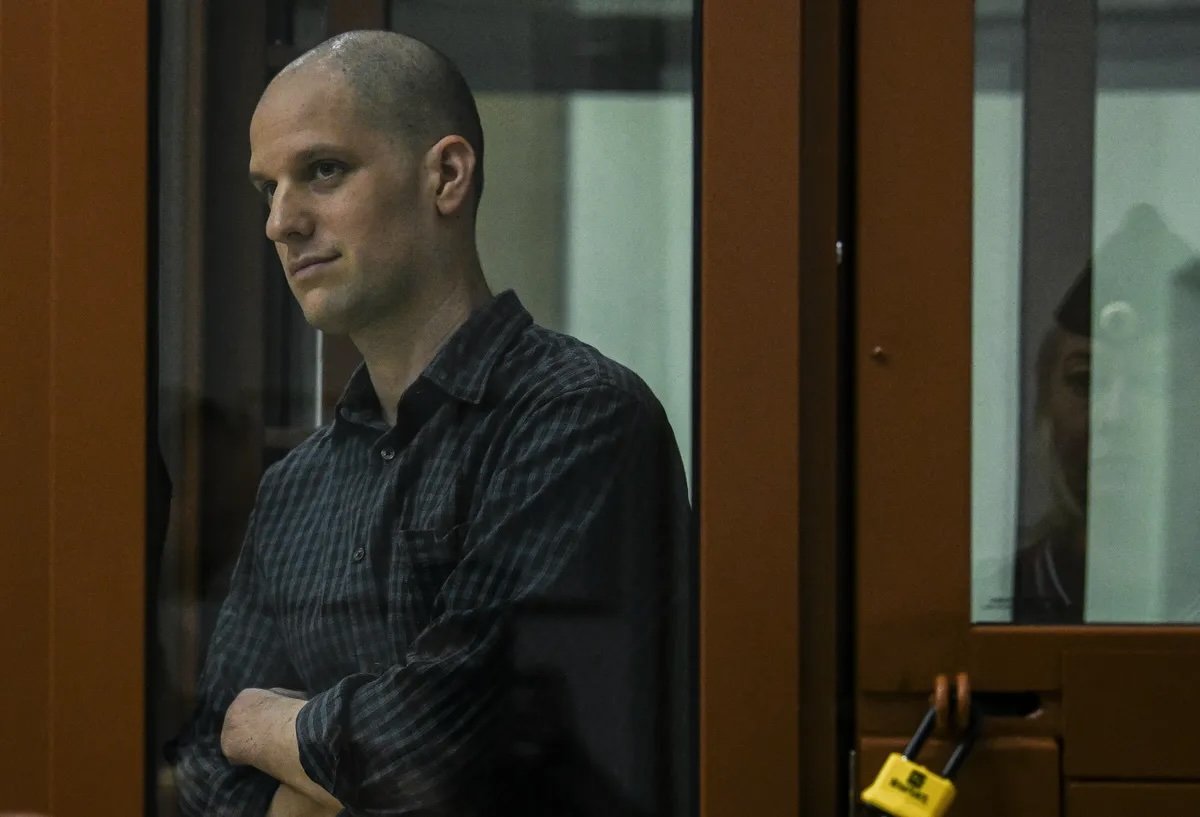
Photo: EPA-EFE / STRINGER
Evan Gershkovich
The first US journalist to be arrested on espionage charges in Russia since the Cold War, Wall Street Journal Moscow correspondent Evan Gershkovich was detained by the FSB on suspicion of espionage in March 2023 while on assignment in Yekaterinburg. After spending over a year in pretrial detention in Moscow’s notorious Lefortovo Prison, he was last month sentenced to 16 years in prison in a trial that took place behind closed doors.
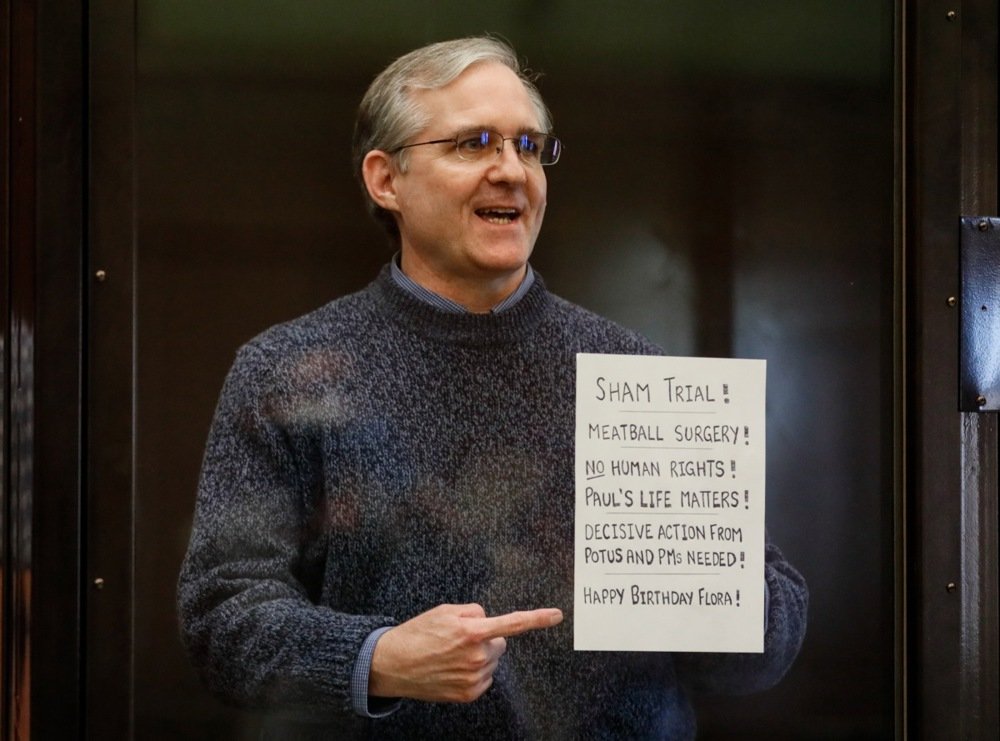
Photo: EPA-EFE / YURI KOCHETKOV
Paul Whelan
Paul Whelan, a former US Marine, was sentenced to 16 years in prison for espionage in 2018, after a flash drive containing “secret materials” was allegedly found in his hotel room while he was on a two-week visit to Russia. Whelan has always maintained his innocence and categorically rejected accusations of being a spy.
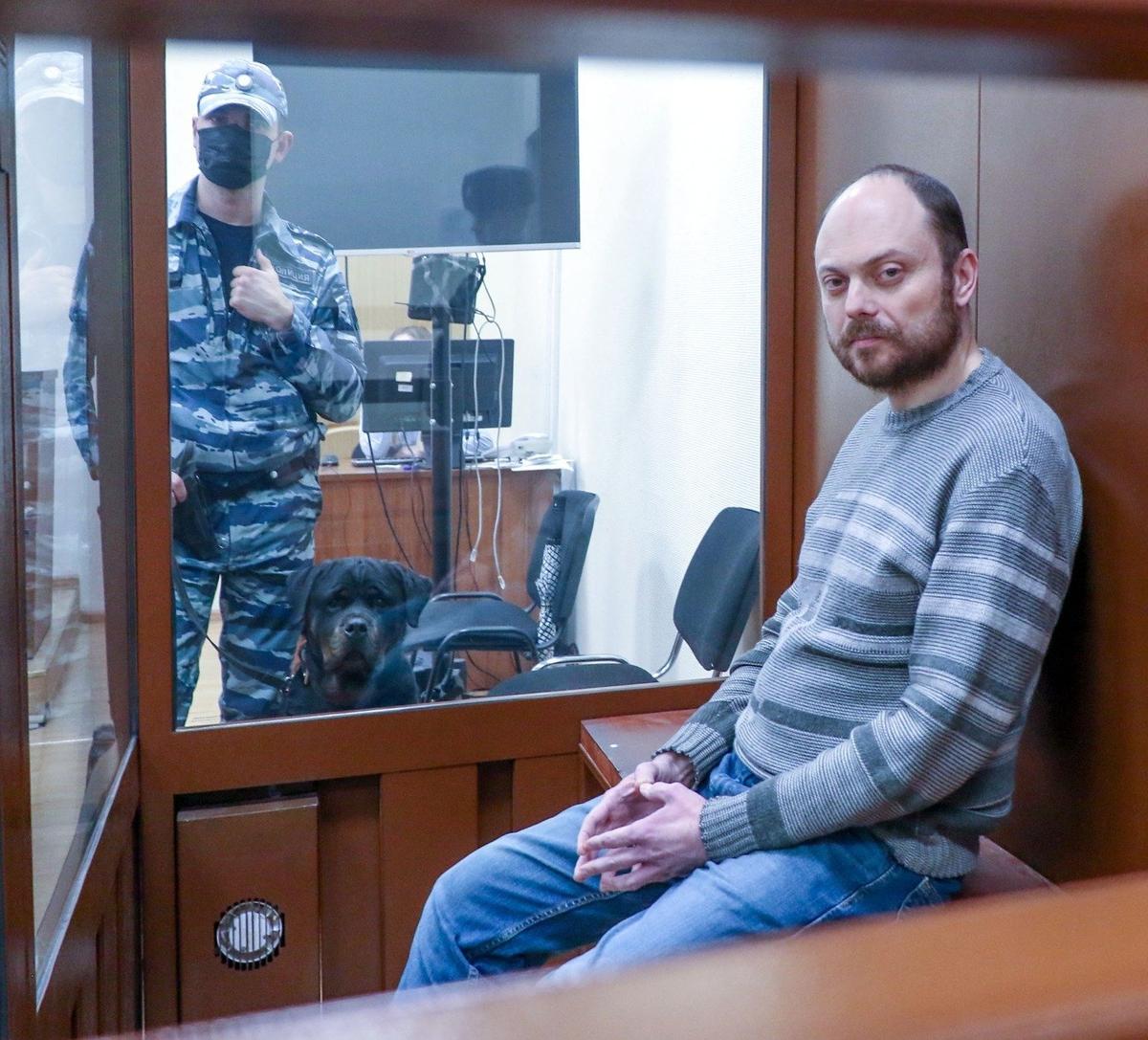
Photo: Vadim Prokhorov
Vladimir Kara-Murza
Vladimir Kara-Murza was an outspoken opposition politician in Russia before being detained for disseminating “false information” about the Russian military, participating in the activities of an “undesirable organisation” and treason. He was sentenced to 25 years in a Siberian penal colony in April 2023 despite suffering from extremely poor health, which he attributes to two poisoning attempts made on his life by the Kremlin. Last month, a severely ill Kara-Murza was transferred to a prison hospital in Siberia, leading many of his supporters to fear the worst.
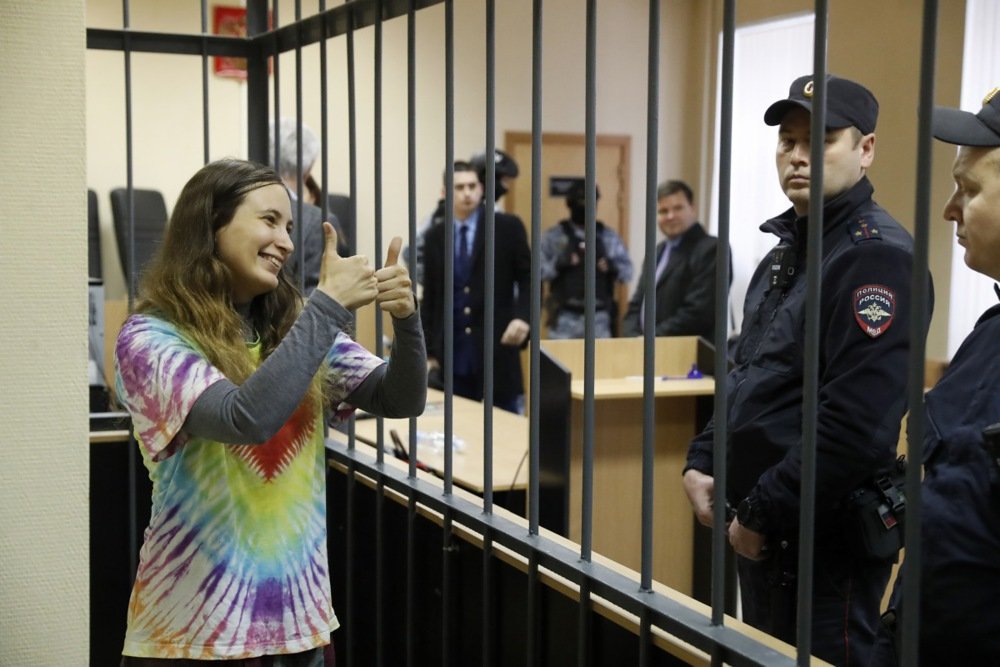
Photo: EPA-EFE /ANATOLY MALTSEV
Sasha Skochilenko
Sasha Skochilenko, a St. Petersburg-based artist and musician who left anti-war messages on price labels in her local supermarket, was sentenced to seven years in prison for spreading “false information” about the Russian military. “How fragile must the prosecutor’s belief in our state and society be if he thinks that our statehood and public safety can be undermined by five small pieces of paper?” Skochilenko said in her final address to the court, adding: “Despite being behind bars, I am freer than you.”
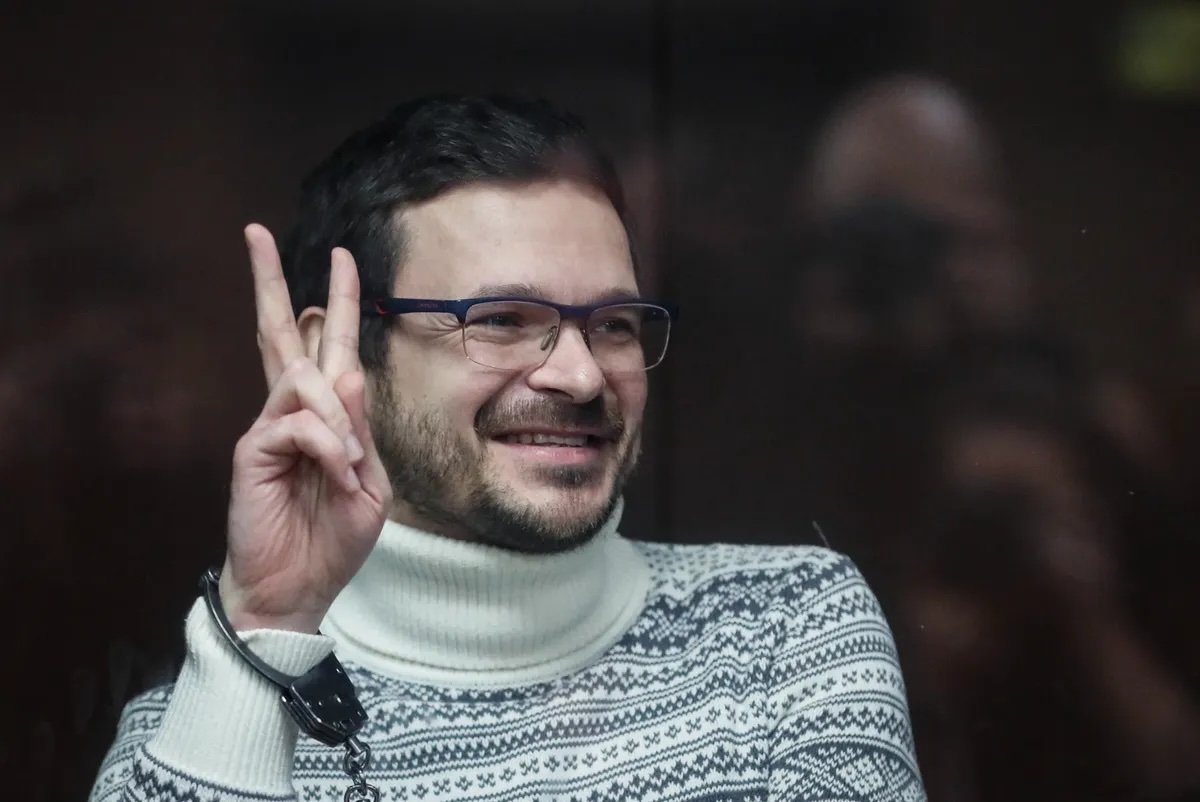
Photo: EPA-EFE / YURI KOCHETKOV
Ilya Yashin
Ilya Yashin is an independent politician and blogger who was sentenced to 8.5 years in prison for spreading “false information” about the Russian army for publicly condemning the indiscriminate killing of Ukrainian civilians by occupying Russian troops in the Kyiv suburb of Bucha in March 2022. Since being sentenced, Yashin has been repeatedly sent to a so-called “punishment cell”, a separate facility within a prison where inmates are forced to endure far harsher conditions.
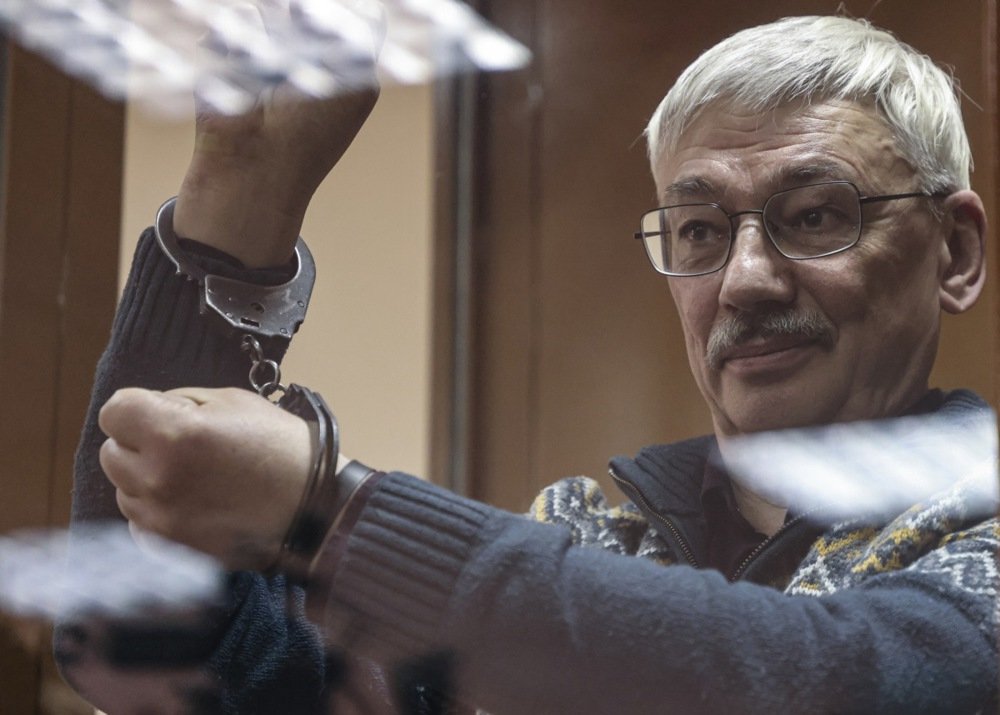
Photo: EPA-EFE / SERGEI ILNITSKY
Oleg Orlov
A veteran Russian activist and a co-chair of Nobel-Prize-winning human rights organisation Memorial, Oleg Orlov was accused of “repeatedly discrediting the Russian military” in an article he wrote condemning the war in Ukraine and was initially fined 150,000 rubles (€1,500). However, the Prosecutor General’s Office requested a retrial, saying that Orlov’s punishment had been too lenient. Orlov refused to defend himself at his second trial, choosing instead to read The Trial by Franz Kafka as a gesture of defiance. He was ultimately handed a 2.5-year sentence.
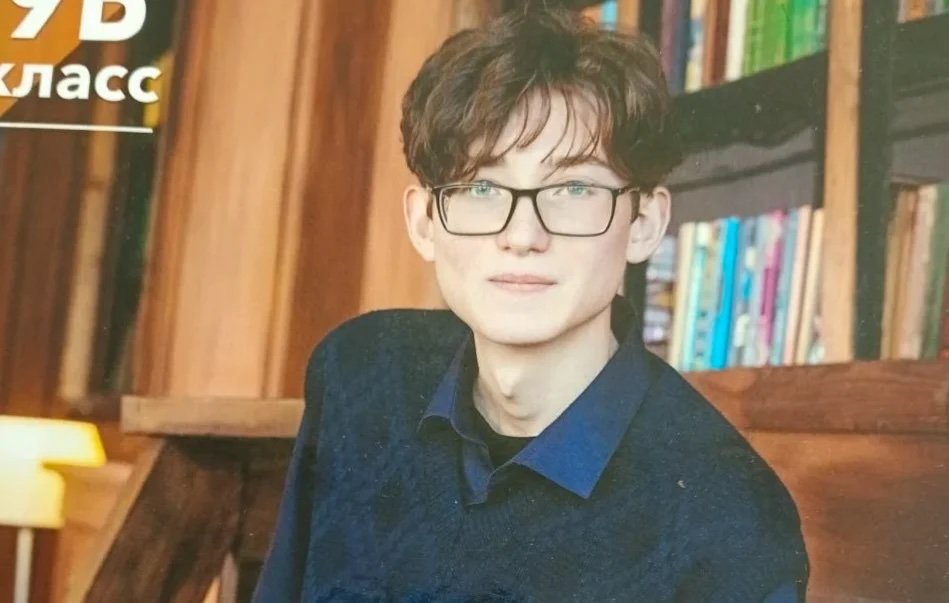
Photo: Lick family archive
Kevin Lick
Kevin Lick was arrested in the spring of 2023 and charged with photographing military sites in Maykop, the capital of the North Caucasus republic of Adygea, and emailing the photographs to “representatives of a foreign state” when he was just 16. Lick spent 10 months in pretrial detention before being tried as an adult, having turned 18 while in custody. Before he was sentenced to four years in prison, he and his mother had been planning to return to Germany, where Lick was born.
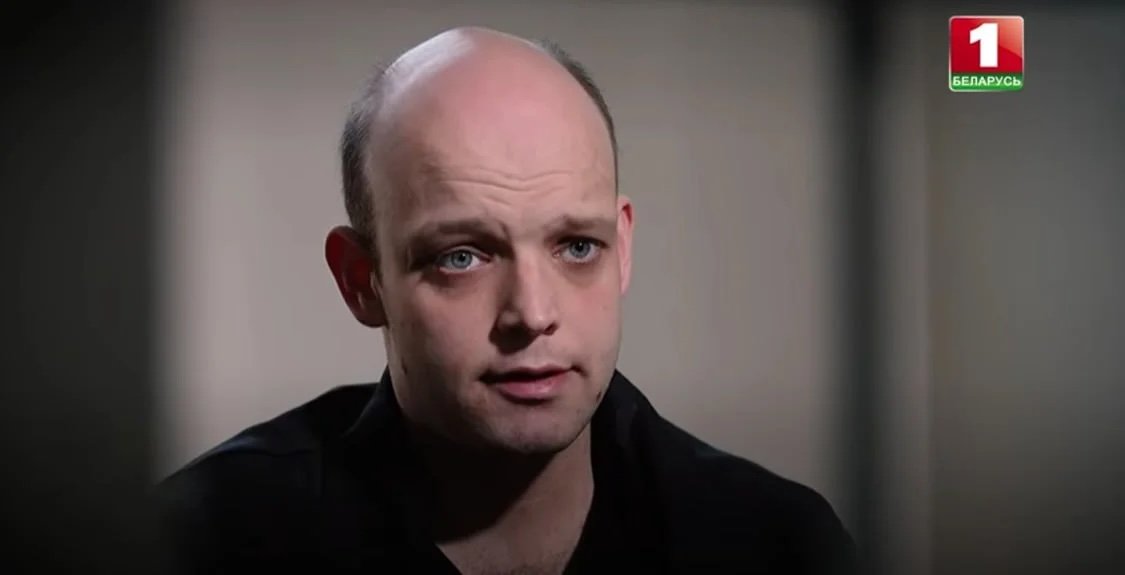
Screenshot: Belarus-1 TV channel
Rico Krieger
Rico Krieger is a German citizen and former Red Cross employee who was sentenced to death in Belarus in June for allegedly planting explosives along a railway line and taking photographs of military installations on behalf of the Security Service of Ukraine. A month later, Belarusian dictator Alexander Lukashenko pardoned Krieger, whose execution could have been carried out at any moment.
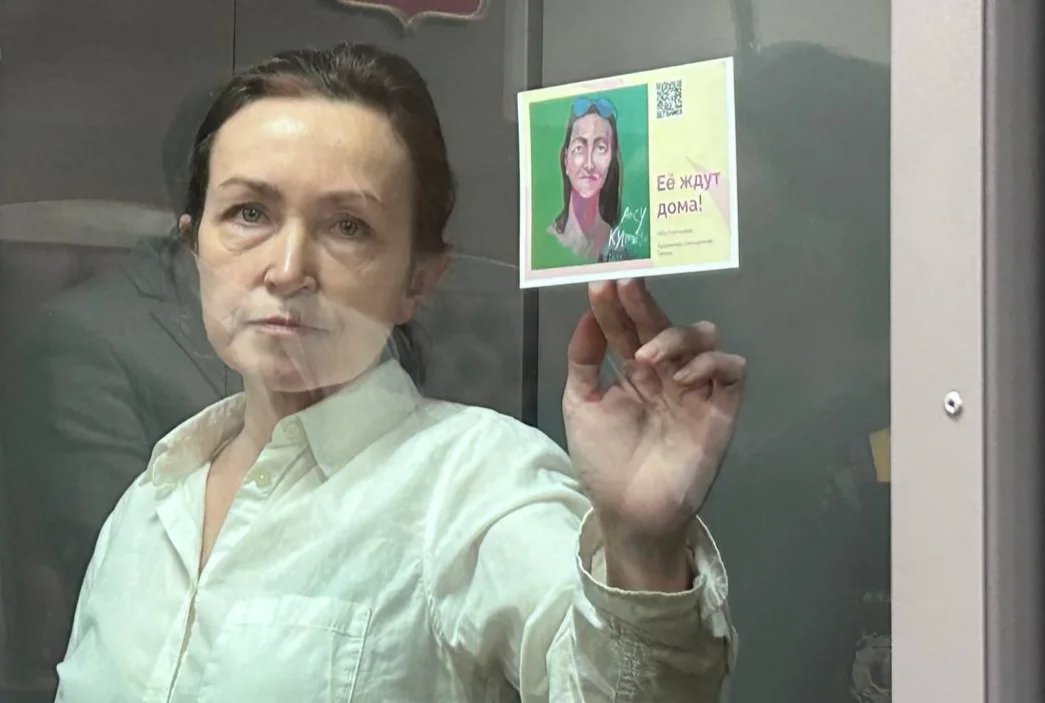
Photo: RusNews
Alsu Kurmasheva
A Russian-American journalist with the Tatar-Bashkir service of US-funded media outlet Radio Free Europe/Radio Liberty, Alsu Kurmasheva was initially detained at Kazan Airport in October while on a private visit to Russia for her failure to report her dual US citizenship to the Russian authorities. However, after an investigation she was sentenced to six and a half years in prison in July for spreading “false information” about the Russian military.
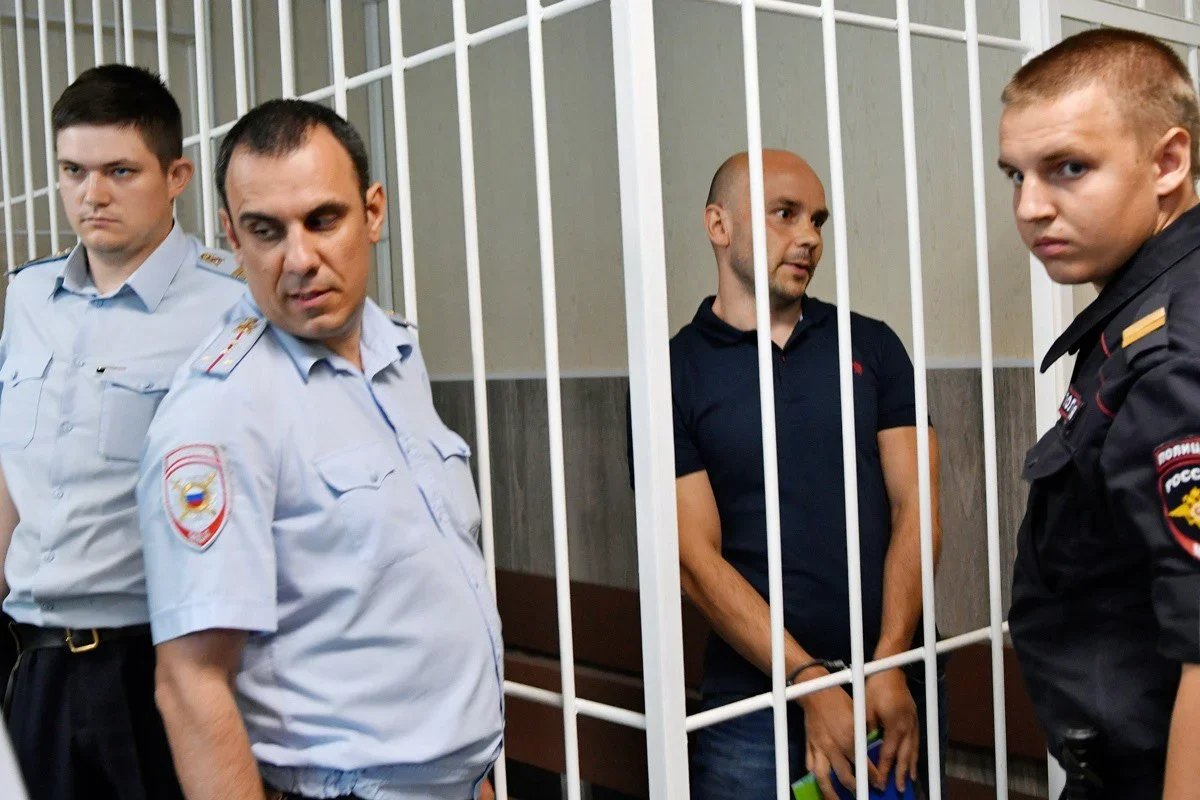
Photo: Anatoly Rodnikov / Kommersant / Sipa USA / Vida Press
Andrey Pivovarov
Andrey Pivovarov was the executive director of the pro-democracy organisation Open Russia, which was later deemed an “undesirable organisation” by the Russian government. He was detained in May 2021 and charged for his association with the movement, for which he was sentenced to four years in prison in July 2022. Amnesty International issued a statement calling for his immediate release in February 2023.
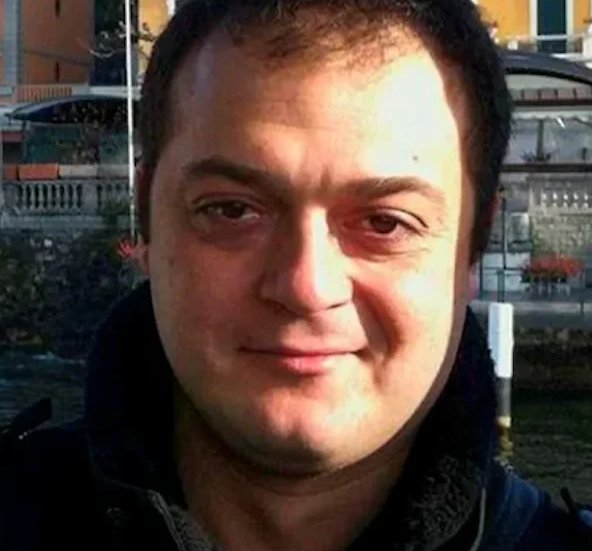
Demuri Voronin. Photo: VK
Demuri Voronin
Demuri Voronin, a political scientist who owned a consulting company in Moscow that worked closely with journalists, was implicated in the criminal case against journalist Ivan Safronov and accused of passing classified information to both the University of Zurich and Germany’s Federal Intelligence Service. He was found guilty and sentenced to 13 years in prison in March 2023.
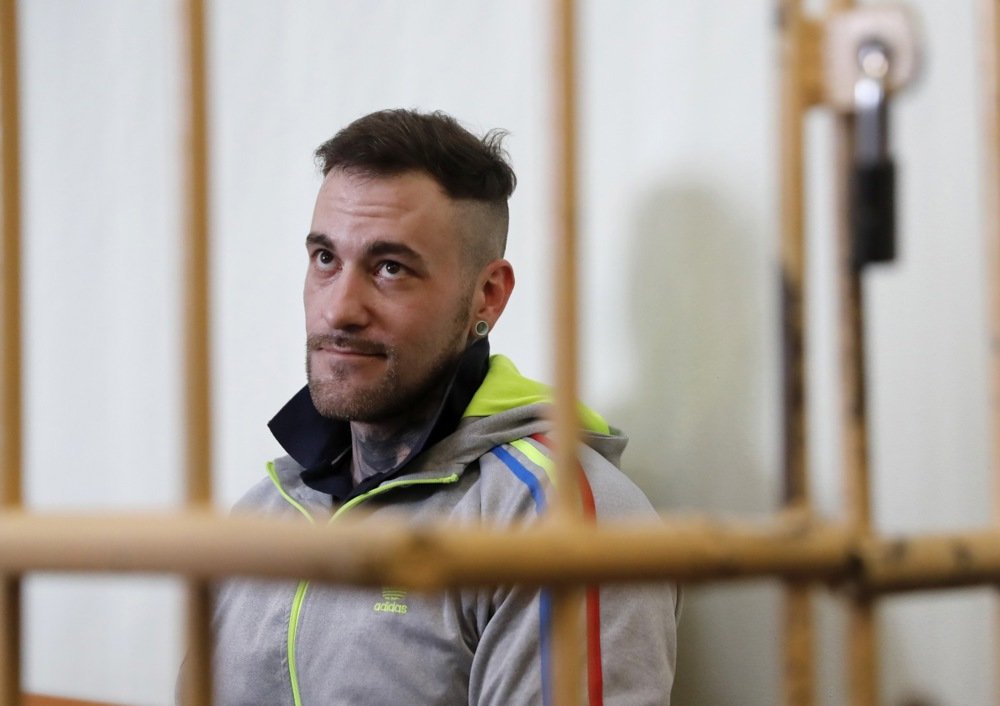
Photo: EPA-EFE / ANATOLY MALTSEV
Patrick Schöbel
Patrick Schöbel is a German citizen who was arrested at St. Petersburg’s Pulkovo airport in February on suspicion of carrying gummy candies containing cannabis. Schöbel admitted guilt and was awaiting trial in a pretrial detention centre.
The exchanged
Eight Russian citizens who had been serving prison sentences in the US, Germany, Norway and Slovenia were returned to Moscow as part of the exchange. The two children of convicted Russian deep cover agents Anna and Artyom Dultseva were also on board the flight, having spent the past year and a half in foster care in Slovenia while their parents awaited trial for espionage.
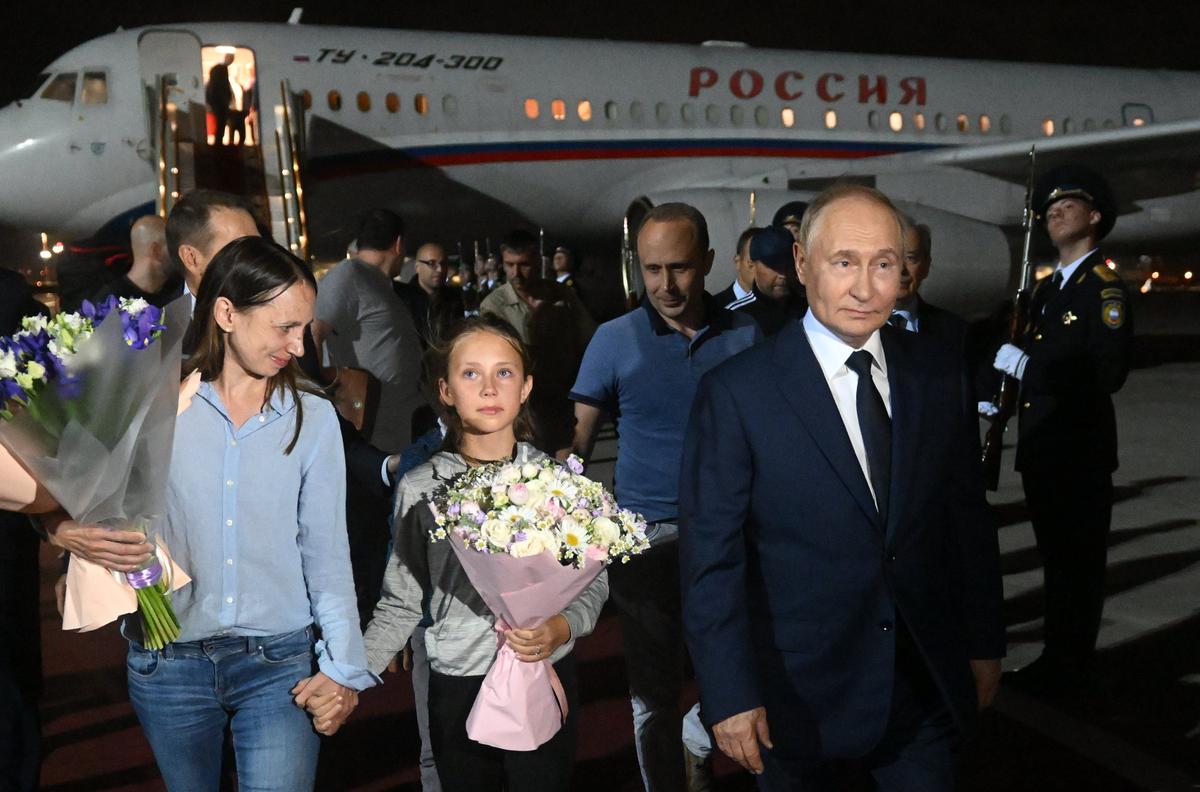
Vladimir Putin meets returning Russian prisoners freed by the West at Moscow’s Vnukovo Airport, 1 August 2024. Photo: EPA-EFE / MIKHAIL VOSKRESENSKIY
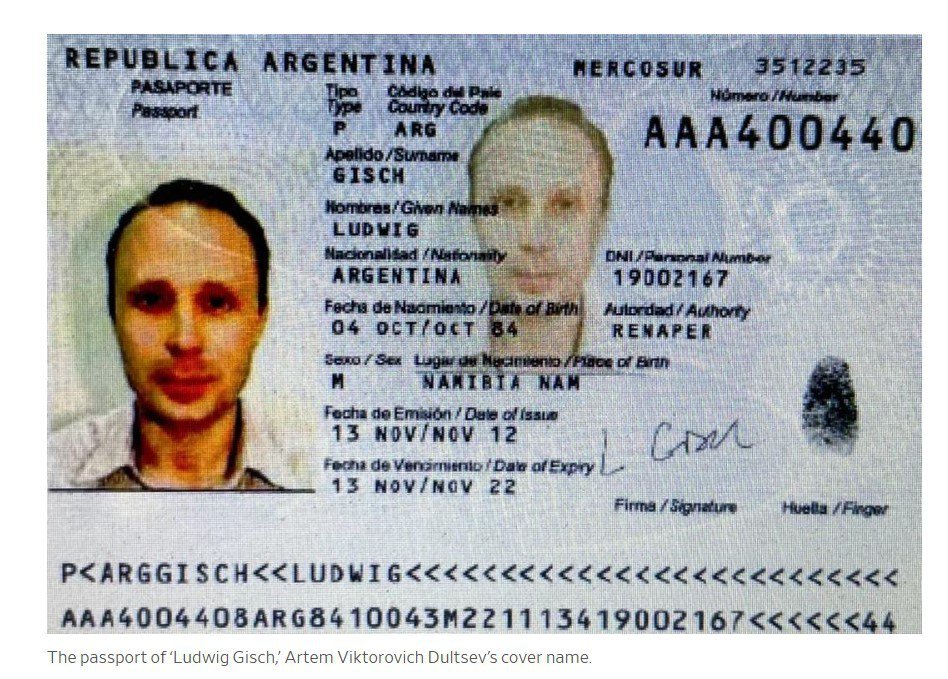
Artyom Dultsev. Photo: SOTA
Artyom Dultsev
Artyom Dultsev worked as a Russian deep cover agent and lived with his wife Anna and their two children in the Slovenian capital Ljubljana, where the family assumed the identity of immigrants from Argentina. The couple are believed to have taken advantage of Slovenia’s status within the Schengen free movement zone to travel throughout Europe without having to pass through border checkpoints. They both pleaded guilty to charges of spying and falsifying documents, and were sentenced to 19 months in prison each on 31 July.
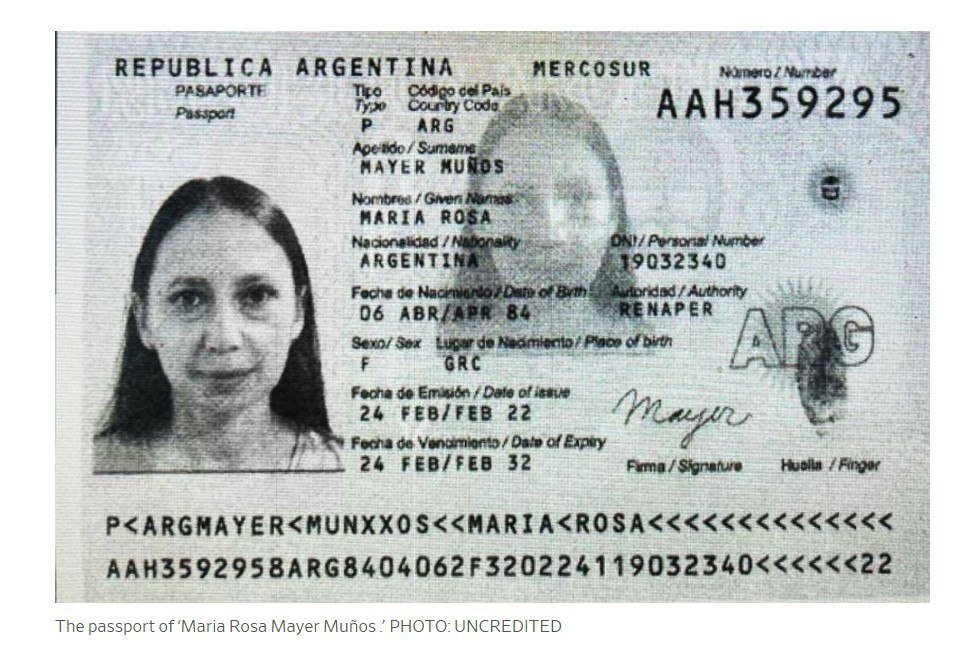
Anna Dultseva. Photo: SOTA
Anna Dultseva
Anna Dultseva arrived in Slovenia in 2017 on an Argentine passport in the name of Maria Rosa Mayer Muños. She settled in Ljubljana, started her own online art gallery, and was able to travel freely to neighbouring countries, transmit orders from Moscow and bring cash to other Russian covert agents. Dultseva and her husband were charged with espionage on 31 July and were earlier this week sentenced to a year and seven months in prison, but then expelled from the country as part of the exchange. Both she and her husband have been banned from returning to the country for five years.
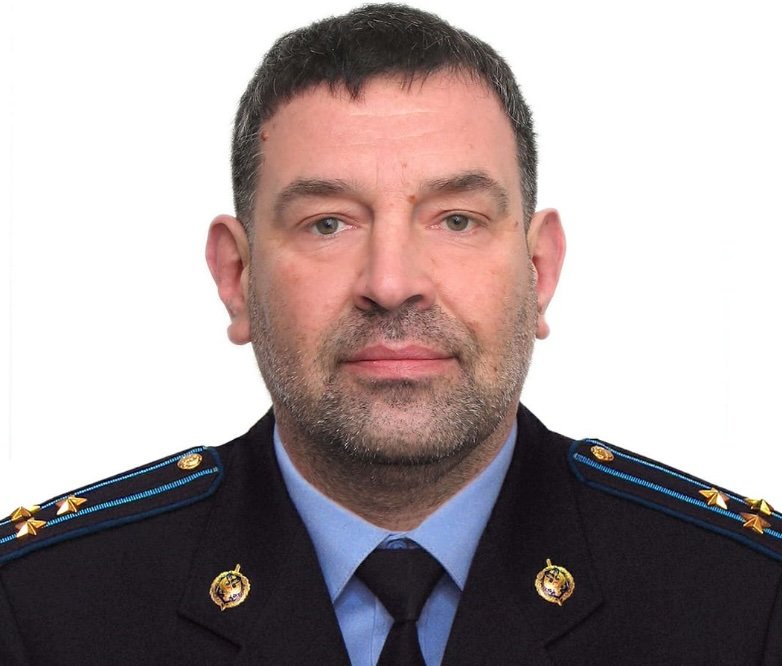
Vadim Konoshchenok. Photo: US Department of Justice
Vadim Konoshchenok
Vadim Konoshchenok, who is a Russian citizen and has alleged ties to Russia’s FSB, was arrested in Estonia and extradited to the US in July 2023 on charges of smuggling American-made technologies and ammunition to the Russian government for its war effort in Ukraine. His trial was being conducted in New York and, if found guilty, he would have faced up to 30 years in prison. He pleaded not guilty to the charges.
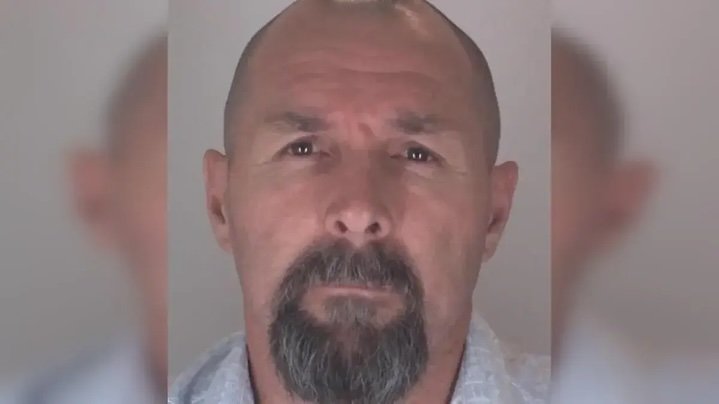
Vadim Krasikov. Photo: social media
Vadim Krasikov
Vadim Krasikov is a colonel in Russia’s Federal Security Service (FSB) who was sentenced to life imprisonment in Germany for the assassination of a Georgian citizen in a Berlin park in 2019. The victim had fought as a Chechen rebel commander during the Second Chechen War and was later granted asylum in Germany. A joint investigation by Der Spiegel, The Insider and Bellingcat found evidence that Krasikov had been training at the FSB’s Special Operations Centre outside Moscow just days before the assassination. When he was arrested, Krasikov was found in possession of a Russian passport in the name of Vadim Sokolov. It has now emerged that Krasikov, whose release became something of an obsession for his FSB colleague Vladimir Putin, had been slated for exchange for opposition leader Alexey Navalny, but was killed just days beforehand in the Arctic penal colony where he was incarcerated.

Mikhail Mikushin. Photo: Twitter
Mikhail Mikushin
Mikhail Mikushin, a Brazilian citizen, travelled to Norway in late 2021 under the name José Assis Giammaria to take up a post as a guest lecturer at the Arctic University of Norway in Tromsø. He was arrested in 2022 on suspicion of being a Russian spy. Norwegian intelligence suspected that Mikushin was actually a Russian citizen and that he was working undercover in the country as an intelligence agent gathering information for the Russian authorities. In December, Mikushin admitted that he was indeed a Russian citizen, while continuing to deny all the charges against him.
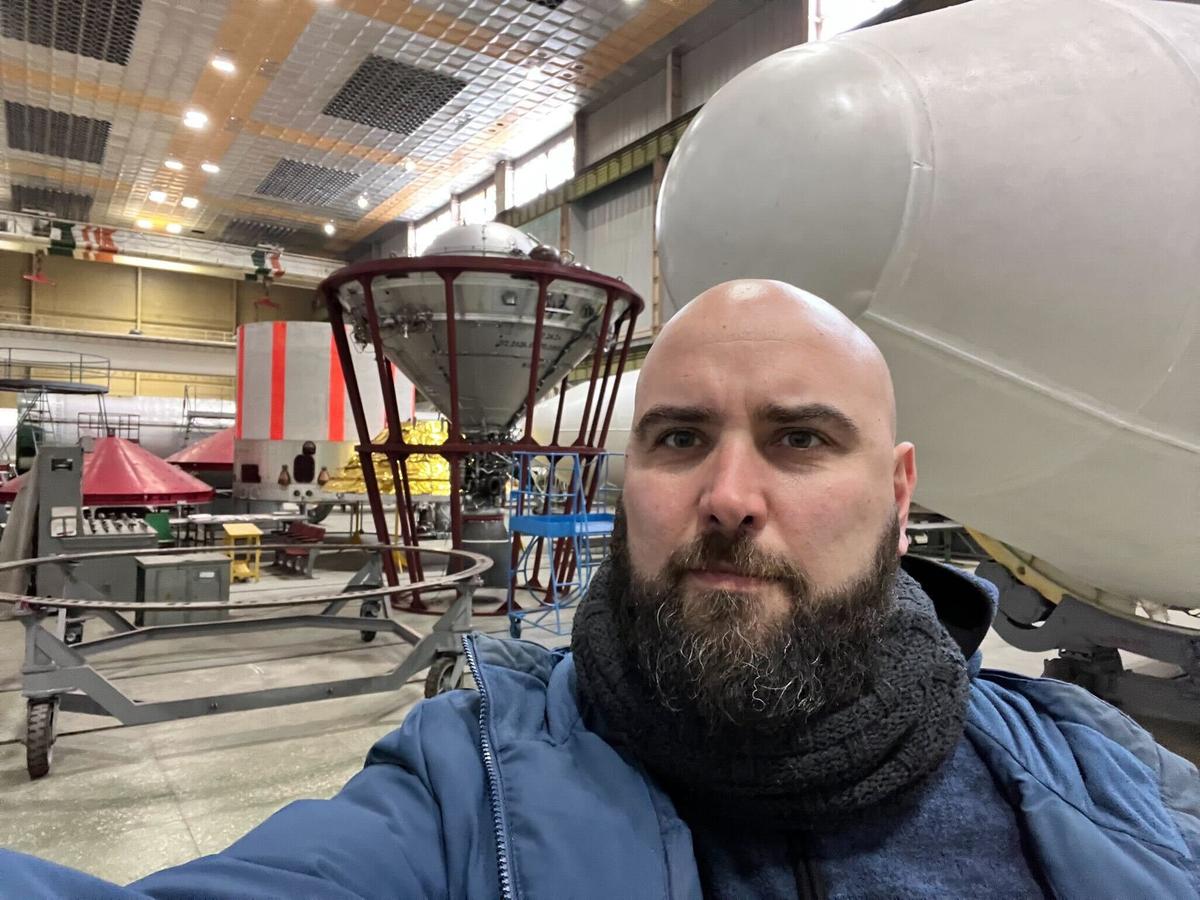
Pavel Rubtsov. Photo: Twitter
Pavel Rubtsov
Pavel Rubtsov, who went by the name Pablo González, is a Spanish journalist of Russian ancestry and suspected Russian military intelligence agent. In February 2022, Rubtsov was detained in Poland while trying to cross the border into Ukraine. It was revealed that the journalist was sending reports detailing the activities of Zhanna Nemtsova, the daughter of murdered Russian opposition leader Boris Nemtsov, as well as employees and partners of the Boris Nemtsov Foundation to an unknown recipient.
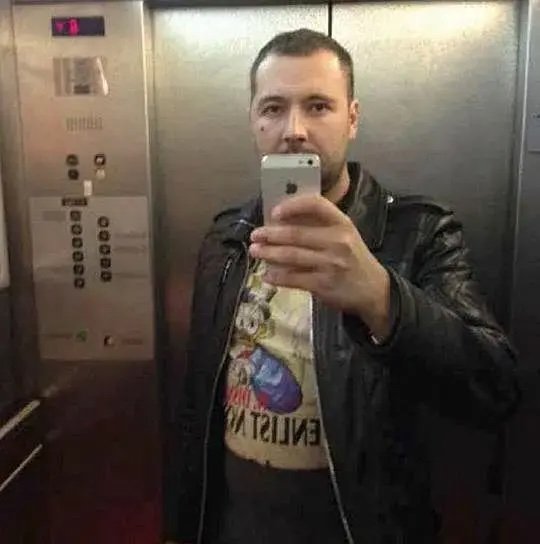
Roman Seleznyov. Photo: US Department of Justice
Roman Seleznyov
Roman Seleznyov is a Russian national who was sentenced to 14 years in prison in November 2017 for his participation in a $50 million (€44.2 million) cyber fraud ring and for defrauding US banks of $9 million (€8 million) in a hacking scheme. Seleznyov pleaded guilty to the charges and admitted to beginning his hacking career in the early 2000s by stealing credit card information. Seleznyov is the son of Valery Seleznyov, who is a State Duma member.
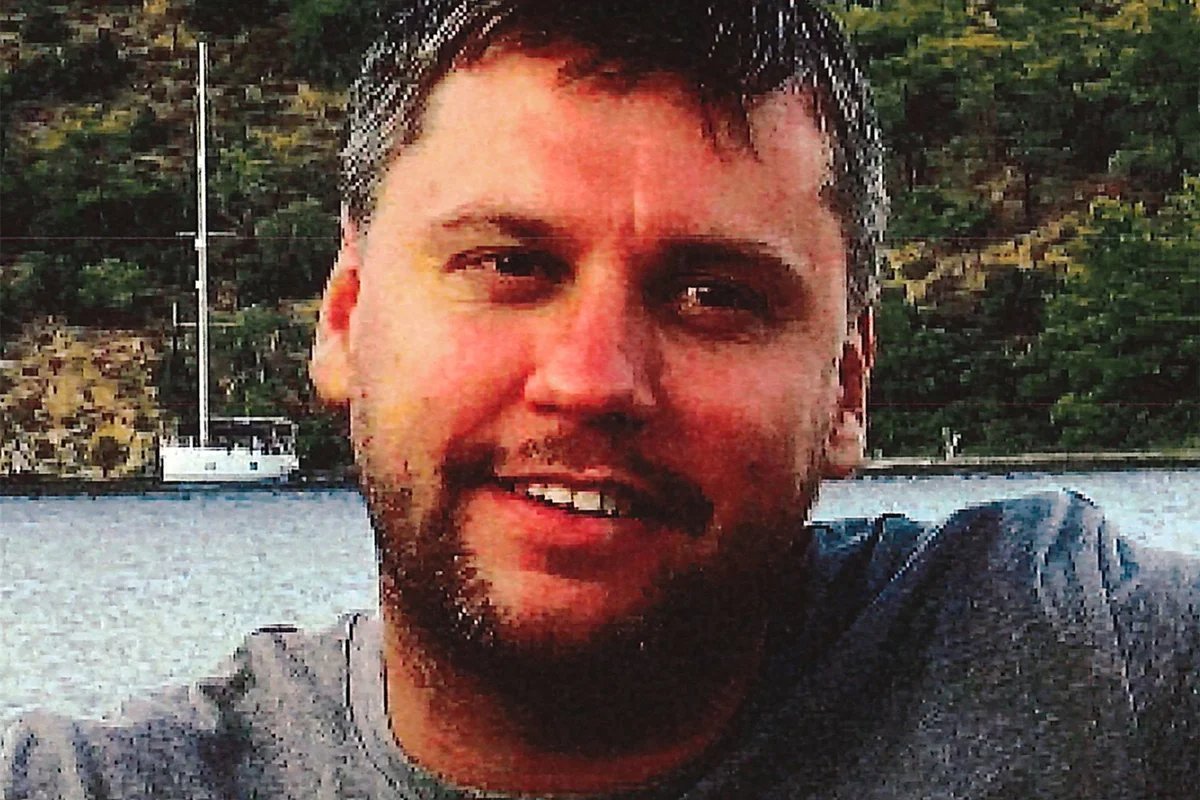
Photo: US Department of Justice / Reuters / Scanpix / LETA
Vladislav Klyushin
Vladislav Klyushin, a Russian businessman, was sentenced to nine years in prison for his connection to a hack-to-trade scheme that made $93 million (€86 million) in securities trades through stolen US corporate data. Klyushin previously ran a Moscow-based information technology company that regularly did work for the Russian government. He was convicted in February 2023.
Join us in rebuilding Novaya Gazeta Europe
The Russian government has banned independent media. We were forced to leave our country in order to keep doing our job, telling our readers about what is going on Russia, Ukraine and Europe.
We will continue fighting against warfare and dictatorship. We believe that freedom of speech is the most efficient antidote against tyranny. Support us financially to help us fight for peace and freedom.
By clicking the Support button, you agree to the processing of your personal data.
To cancel a regular donation, please write to [email protected]
